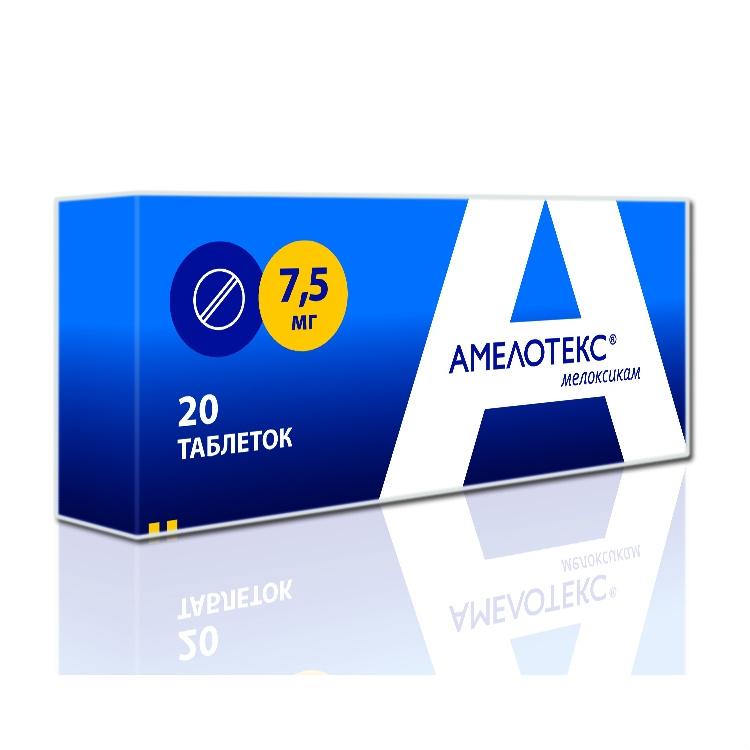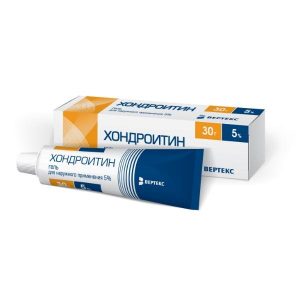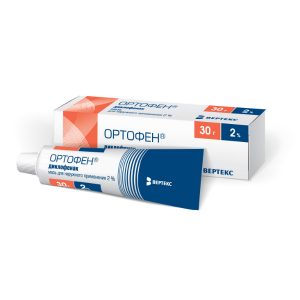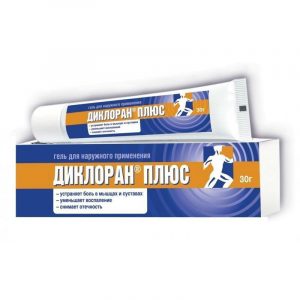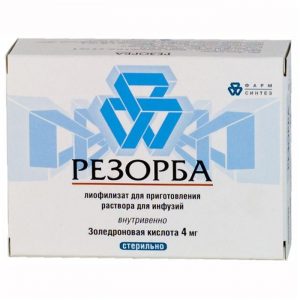Description
Release form
Tablets
Packing
20 pcs.
Pharmacological action
Meloxicam is a non-steroidal anti-inflammatory drug with analgesic, anti-inflammatory and antipyretic effects. The anti-inflammatory effect is associated with inhibition of the enzymatic activity of cyclooxygenase-2 (COX-2), which is involved in the biosynthesis of prostaglandins in the area of inflammation. To a lesser extent, meloxicam acts on cyclooxygenase-1 (COX-1), which is involved in the synthesis of prostaglandin, which protects the mucous membrane of the gastrointestinal tract and is involved in the regulation of blood flow in the kidneys.
Indications
Osteoarthrosis rheumatoid arthritis ankylosing spondylitis (ankylosing spondylitis).
Designed for symptomatic therapy, reduce pain and inflammation at the time of use, does not affect the progression of the disease.
Contraindications
Hypersensitivity to the active substance or auxiliary components of
is contraindicated in the period after coronary artery bypass grafting
decompensated heart failure
complete or incomplete combination of bronchial asthma, recurrent necrosis and other non-splenic polypeptic acidosis. h in history)
erosive-ulcerative changes in the mucous membrane of the stomach or duodenum, su- gastrointestinal bleeding
inflammatory bowel disease (ulcerative colitis, Crohn ² ¢s disease)
cerebrovascular bleeding or other bleeding
severe liver failure or active liver disease
severe renal failure in patients not undergoing dialysis (creatinine clearance less than 30 ml / min), progressive kidney disease including confirmed hyperkalemia
pregnancy, breastfeeding
children under 15 years of age.
Due to the presence of lactose in the preparation, patients with rare hereditary diseases such as lactose intolerance, lactase deficiency or glucose-galactose malabsorption should not take the drug.
Caution:
To reduce the risk of adverse events, the minimum effective dose should be used with the lowest possible short course for:
coronary heart disease, cerebrovascular disease, congestive heart failure, dyslipidemia / hyperlipidemia, diabetes mellitus, peripheral artery disease, smoking, creatinine clearance less than 60 ml / min, anamnestic data on the development of ulcerative lesions of the gastrointestinal tract, in the presence of Helicobacter pori infection in old age, with prolonged use of non-steroidal anti-inflammatory drugs, frequent alcohol consumption, severe somatic diseases, concomitant therapy are as follows my drugs: anticoagulants (e.g. warfarin), antiplatelet agents (e.g. acetylsalicylic acid, clopidogrel), oral glucocorticosteroids (e.g. prednisone), selective serotonin reuptake inhibitors (e.g. citalopram, fluoxetine, paroxetine, sertraline).
Use during pregnancy and lactation
It is contraindicated to take during pregnancy and lactation.
Special instructions
Caution should be exercised when using the drug in patients with a history of gastric and duodenal ulcer, as well as in patients undergoing anticoagulant therapy. In such patients, the risk of ulcerative erosive diseases of the gastrointestinal tract is increased.
Caution should be exercised and renal function indicators monitored when using the drug in elderly patients, patients with chronic heart failure with symptoms of circulatory failure, in patients with cirrhosis, as well as in patients with hypovolemia as a result of surgical interventions.
In patients with renal failure, if creatinine clearance is more than 30 ml / min, dosage adjustment is not required. In patients on hemodialysis, the dosage should not exceed 7.5 mg / day.
With persistent and significant increase in transaminases and changes in other indicators of liver function, the drug should be discontinued and control tests performed.
Patients taking both diuretics and meloxicam should take enough fluids.
If an allergic reaction occurs during treatment (itching, skin rash, urticaria, photosensitivity), you must stop taking the drug.
Meloxicam, like other non-steroidal anti-inflammatory drugs, can mask the symptoms of infectious diseases.
The use of meloxicam, as well as other drugs that block the synthesis of prostaglandins, can affect fertility, so it is not recommended for women planning pregnancy.
Impact on the ability to drive transp. Wed and fur .:
The use of the drug may cause unwanted effects in the form of headaches and dizziness, drowsiness. You should refuse to drive vehicles and maintain machines and mechanisms that require concentration.
Composition
1 tablet contains meloxicam – 7.5 mg as an active substance.
Excipients: lactose monohydrate, microcrystalline cellulose, sodium citrate, povidone, crospovidone, colloidal silicon dioxide, magnesium stearate.
Dosage and administration
The drug is taken orally with meals once a day.
Recommended dosage: Rheumatoid arthritis: 15 mg per day. Depending on the therapeutic effect, the dose can be reduced to 7.5 mg per day.
Osteoarthrosis: 7.5 mg per day. With inefficiency, the dose can be increased to 15 mg per day.
Ankylosing spondylitis: 15 mg per day.
The maximum daily dose should not exceed 15 mg.c, as well as in patients with severe renal failure undergoing hemodialysis, the dose should not exceed 7.5 mg per day.
Side effects of
From the gastrointestinal tract: more than 1% – dyspepsia, including nausea, vomiting, abdominal pain, constipation, flatulence, diarrhea 0.1-1% – a transient increase in the activity of hepatic transaminases, hyperbilirubinemia, belching, esophagitis, gastroduodenal ulcer, bleeding from the gastrointestinal tract (including hidden), stomatitis less than 0.1% – perforation of the gastrointestinal tract, colitis, hepatitis, gastritis.
From the side of hematopoietic organs: more than 1% – anemia 0.1-1% change in blood count, incl. leukopenia, thrombocytopenia.
From the skin: more than 1% – itching, skin rash 0.1-1% – urticaria less than 0.1% – photosensitivity, bullous rashes, erythema multiforme, incl. Stevens-Johnson syndrome toxic epidermal necrolysis.
From the respiratory system: less than 0.1% – bronchospasm.
From the nervous system: more than 1% – dizziness, headache 0.1 -1% – vertigo, tinnitus, drowsiness less than 0.1% – confusion, disorientation, emotional lability.
From the cardiovascular system: more than 1% – peripheral edema 0.1-1% – increased blood pressure, palpitations, flushing of the face.
From the urinary system: 0.1-1% – hypercreatininemia and / or an increase in serum urea of less than 0.1% – acute renal failure, no connection with meloxicam has been established – interstitial nephritis, albuminuria, hematuria.
On the part of the sensory organs: less than 0.1% – conjunctivitis, visual impairment, including blurred vision.
Allergic reactions: less than 0.1% – angioedema, anaphylactoid / anaphylactic reactions.
Drug Interactions
When used simultaneously with other non-steroidal anti-inflammatory drugs (as well as acetylsalicylic acid), the risk of erosive and ulcerative lesions and bleeding from the gastrointestinal tract increases.
With simultaneous use with antihypertensive drugs, a decrease in the effectiveness of the action of the latter is possible.
With simultaneous use with lithium preparations, it is possible to develop cumulation of lithium and increase its toxic effect (it is recommended to control the concentration of lithium in the blood).
With simultaneous use with methotrexate, the side effect of the latter on the hematopoietic system is enhanced (the risk of anemia and leukopenia, periodic monitoring of the general blood test is indicated).
With simultaneous use with diuretics and with cyclosporine, the risk of developing renal failure increases.
With simultaneous use with intrauterine contraceptives, the effectiveness of the latter may be reduced.
When used simultaneously with anticoagulants (heparin, ticlopidine, warfarin), as well as with thrombolytic drugs (streptokinase, fibrinolysin), the risk of bleeding increases (periodic monitoring of blood coagulability is necessary).
With simultaneous use with colestyramine, as a result of the binding of meloxicam, its excretion through the gastrointestinal tract is enhanced.
Concomitant use with selective serotonin reuptake inhibitors increases the risk of gastrointestinal bleeding.
Overdose
Symptoms: impaired consciousness, nausea, vomiting, epigastric pain, gastrointestinal bleeding, acute renal failure, hepatic failure, respiratory arrest, asystole.
Treatment: there is no specific antidote for overdose of the drug should be gastric lavage, activated charcoal (within the next hour), symptomatic therapy. Cholestyramine accelerates the elimination of the drug from the body. Forced diuresis, hemodialysis are ineffective due to the high association of the drug with blood proteins.
Storage Conditions
Store in a dry, dark place at a temperature not exceeding 25 ° C. Keep out of reach of children.
Shelf life
5 years.
Active ingredient
meloxicam
Terms and conditions
prescription
dosage form
tablets
Prescribing srd rdlkp For children over 15 years old, For children prescribed by a doctor, For adults as prescribed by a doctor
